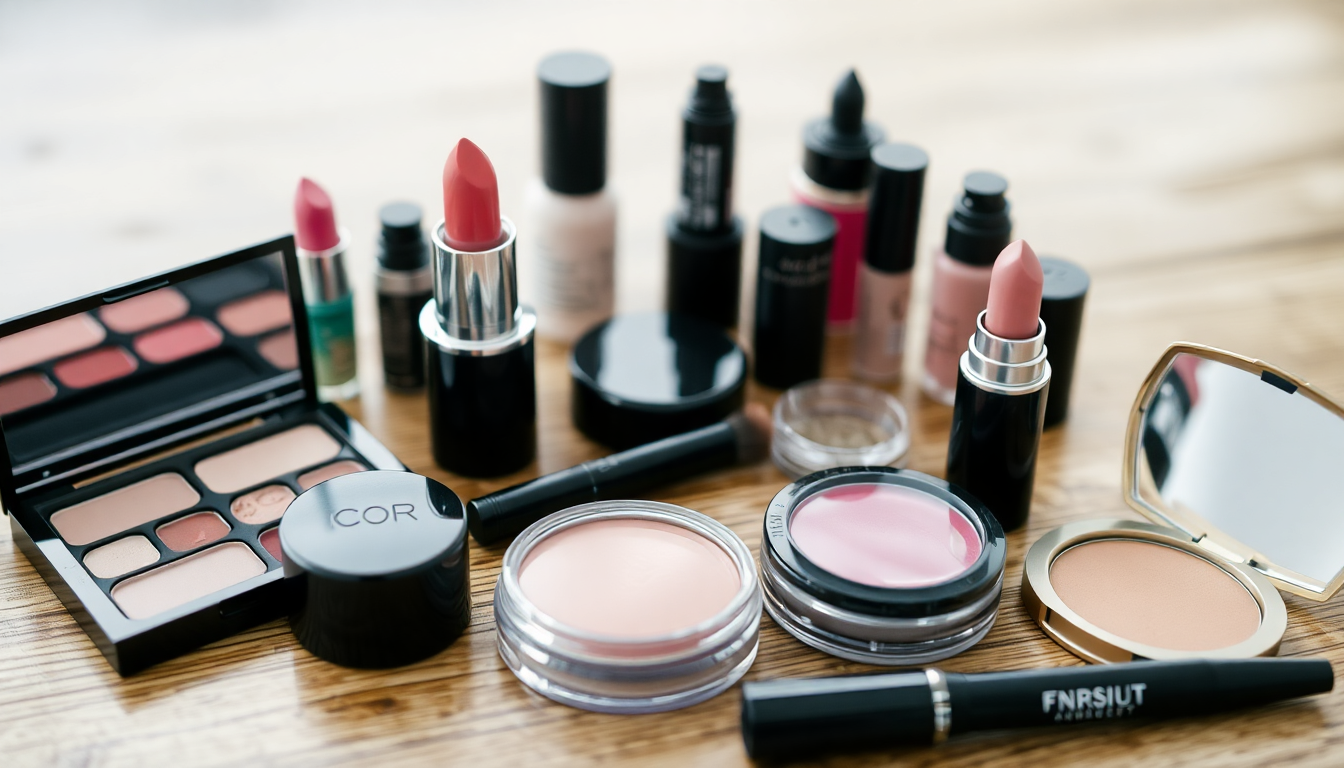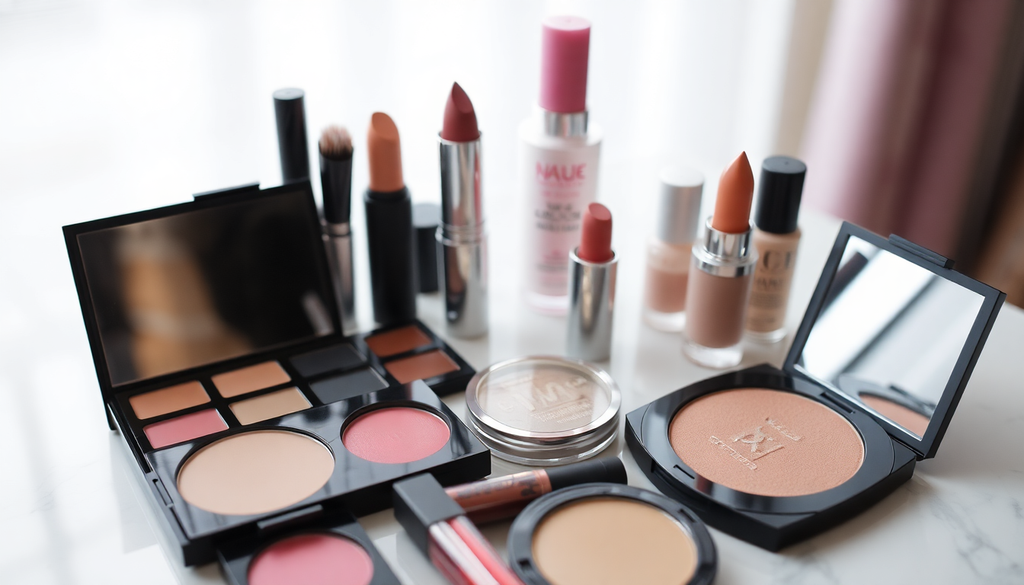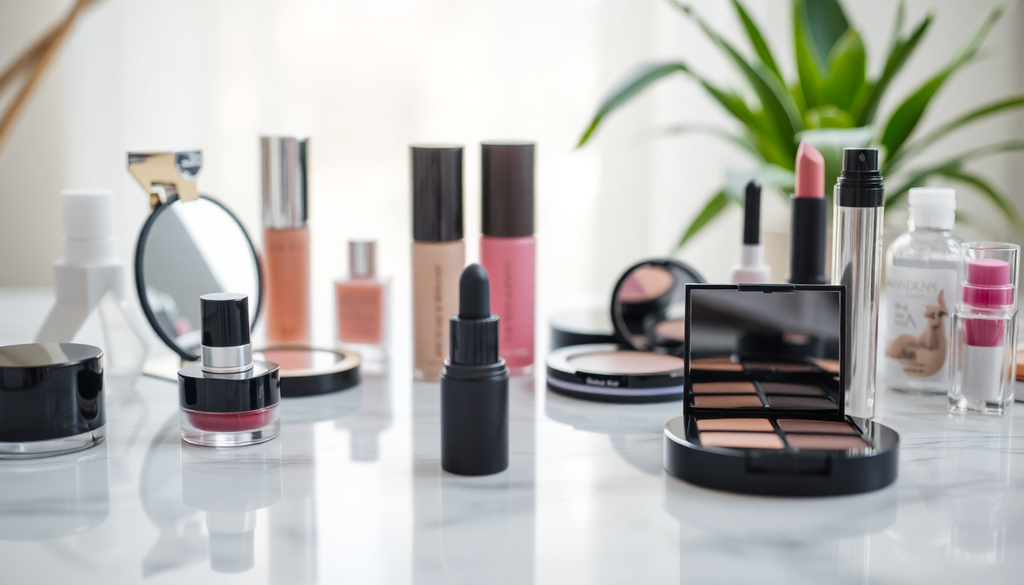
Building Your Makeup Brand in 2025: Essential Strategies for Navigating Private Label Cosmetics and Import Regulations in New Zealand
Introduction
The global beauty industry is projected to reach over $800 billion by 2025, making it an exciting time to launch a makeup brand. However, with great opportunity comes great responsibility, particularly in navigating the complexities of private label cosmetics and import regulations. This article provides a comprehensive guide to building your makeup brand in New Zealand, covering everything from understanding private labeling, complying with import regulations, setting up an online store, to effective marketing strategies.
Understanding Private Labeling
Private labeling allows you to create a unique brand while outsourcing manufacturing to established companies. This approach has numerous advantages:
- Cost-Effective: Private labeling generally requires lower upfront investment compared to manufacturing products from scratch.
- Quality Control: Established manufacturers often have rigorous quality control processes in place, ensuring your products meet high standards.
- Time-Saving: By leveraging existing formulations and supply chains, you can bring your products to market more quickly.
To successfully navigate the private labeling landscape, consider the following steps:
- Research Manufacturers: Look for manufacturers with a solid reputation, positive reviews, and experience in the cosmetic industry.
- Request Samples: Before committing, always request samples to evaluate the quality and performance of the products.
- Negotiate Terms: Discuss pricing, minimum order quantities, and lead times to ensure a mutually beneficial partnership.
Navigating Import Regulations in New Zealand
Importing cosmetics into New Zealand involves understanding and complying with local regulations to ensure product safety and legality. Key steps include:
- Familiarize Yourself with the Regulations: The New Zealand Cosmetic Products Group Standard governs the safety and labeling of cosmetics. Review this standard thoroughly.
- Ingredient Compliance: Ensure that all ingredients used in your products are listed in the Cosmetic Ingredient Review (CIR) database and comply with local regulations.
- Safety Assessments: Conduct safety assessments for all your products. This may involve arranging for third-party testing to confirm that your products are safe for consumer use.
- Product Labeling: Labels must include essential information, such as product name, ingredients, usage instructions, and any necessary warnings. Ensure that your labels comply with the Fair Trading Act and the Consumer Guarantees Act.
Additionally, it is crucial to understand the customs clearance process, including duties and taxes that may apply when importing cosmetics to New Zealand. Be prepared to provide documentation, such as invoices, packing lists, and certificates of origin.
Setting Up Your Online Store
In today's digital landscape, having an online store is essential for reaching your audience. Here’s how to set up your makeup online store effectively:
- Choose the Right E-commerce Platform: Select an e-commerce platform that aligns with your business goals. Popular choices include:
- Shopify: Known for its user-friendly interface and extensive app ecosystem.
- WooCommerce: A flexible option that integrates with WordPress, ideal for those looking for customization.
- BigCommerce: Offers robust built-in features for larger businesses.
- Design Your Website: Create a visually appealing website that reflects your brand identity. Ensure it is mobile-friendly, as a significant portion of online shopping is done via mobile devices.
- Optimize Product Listings: Include high-quality images, detailed descriptions, and pricing for each product. Highlight unique selling points, such as cruelty-free or vegan formulations.
- Set Up Payment and Shipping Options: Choose secure payment gateways (e.g., PayPal, Stripe) and reliable shipping partners. Clearly communicate shipping costs and delivery times to customers.
Marketing Your Makeup Brand
Once your online store is set up, it’s time to focus on marketing your brand. Here are some effective strategies to consider:
- Social Media Marketing: Utilize platforms like Instagram, TikTok, and Facebook. Create engaging content that resonates with your target audience, such as makeup tutorials, behind-the-scenes looks, and user-generated content.
- Influencer Collaborations: Partner with beauty influencers or makeup artists who align with your brand values. Collaborations can help you reach a broader audience and build credibility.
- Email Marketing: Build an email list and send regular newsletters featuring product launches, promotions, and beauty tips. Personalized emails can significantly increase customer engagement.
- Content Marketing: Develop a blog on your website where you share valuable content related to makeup tips, trends, and product usage. This can help improve your SEO efforts and attract organic traffic.
- Search Engine Optimization (SEO): Optimize your website and content for search engines to drive organic traffic. Focus on relevant keywords, meta descriptions, and alt texts for images.
Building a Community
Creating a community around your brand is vital for fostering loyalty and engagement. Here are some ways to build that community:
- Engage with Customers: Respond to comments and messages on social media promptly. Encourage feedback and reviews to show that you value customer opinions.
- Host Virtual Events: Organize online makeup workshops or Q&A sessions to connect with your audience and share your expertise.
- Leverage User-Generated Content: Encourage customers to share their looks using your products on social media. Reposting their content can create a sense of belonging.
Financial Considerations
While building your makeup brand, it’s essential to manage your finances wisely. Consider the following:
- Budgeting: Create a detailed budget that covers manufacturing, marketing, website maintenance, and operational costs.
- Funding Options: Explore various funding options, including personal savings, loans, or crowdfunding, to support your business growth.
- Track Your Financials: Use accounting software to keep track of income, expenses, and profits. This will help you make informed decisions about your business.
Conclusion
Building a successful makeup brand in 2025 requires a multifaceted approach that encompasses understanding private labeling, navigating import regulations, setting up an effective online store, and implementing robust marketing strategies. By following these essential strategies, you can position your brand for success in the competitive beauty industry in New Zealand. Remember, persistence and adaptability are key as you embark on this exciting journey.




